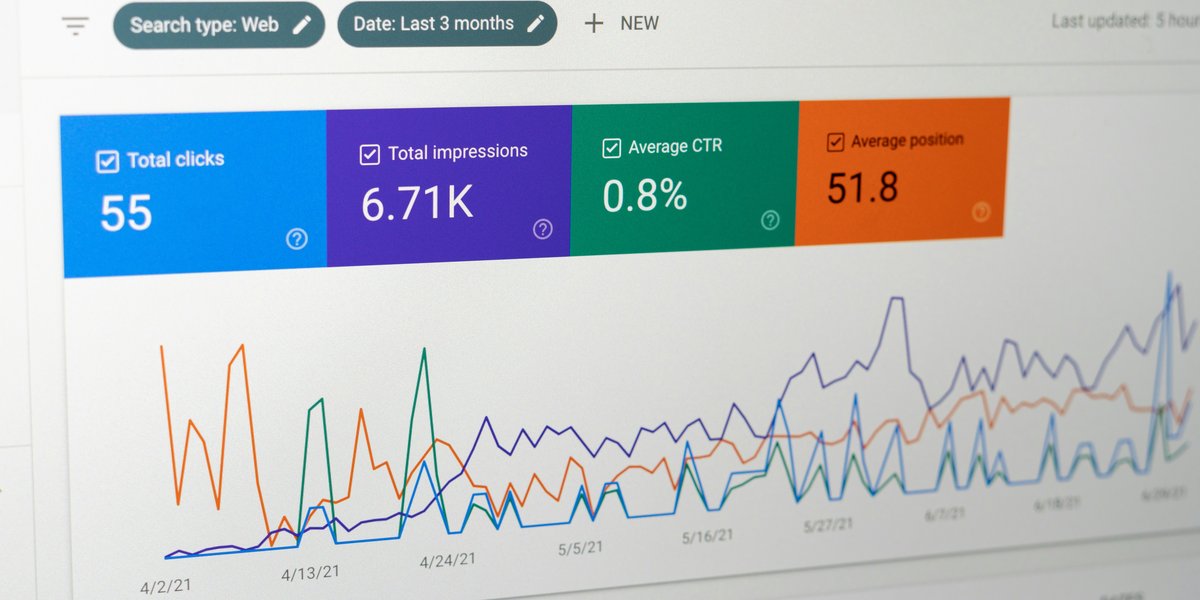
What Business Owners Need to Know About SEO in 2025
Want to stay visible online in 2025? This guide breaks down exactly what CEOs and business leaders need to know about modern SEO strategy.
17 Sep 2025
Google’s latest update has caused a major drop in Search Console impressions, but it’s not a bug. It’s a clean-up. Learn why your rankings are actually stronger and how to respond strategically.
Blog
Google just changed the game.
In mid-September 2025, marketers and SEO specialists around the globe reported a sharp drop in Google Search Console (GSC) impressions. At first glance, it looked like a traffic collapse. But dig deeper, and you’ll realise this change might actually be a good thing, especially for those focused on quality, not quantity.
In this article, we’ll explore:
Let’s break it down.
According to ILIAS ISM (@illyism), a respected voice in the SEO and AI community, Google has rolled out a major change impacting Search Console data:
Why? Because Google has started filtering out non-human traffic, specifically impressions generated by bots and scrapers. These inflated metrics are now gone.
As seen in the Google Search Console screenshot he shared:
In short: you're getting less traffic, but the traffic is more real and the rankings more meaningful.

The removal of bot impressions is a blessing in disguise. Yes, your metrics may look worse, but they’re now more accurate. You’re no longer competing with automated crawlers in your data.
This allows marketers to:
If you’re appearing in search results now, you’re more likely to be in the top 10.
Why?
That means higher-quality ranking opportunities and a real shot at capturing meaningful search traffic.
One of the biggest implications is Google's shift to limit scraping:
This means third-party tools that rely on scraping 100 results per keyword (like some functions in SEMrush, Ahrefs, or Moz) are currently broken or delivering distorted data. As confirmed by SEO Roundtable, most third-party SEO tools are struggling to adapt.

Google is likely making this move to:
It also allows Google to keep its search results proprietary while feeding Google AI tools with deeper access to all 100+ results per query.
In other words, Google is protecting its data moat while still benefiting from it internally.
If you're an Australian business using third-party SEO software, expect:
This is especially critical for local SEO and businesses in competitive niches where data accuracy can drive smarter location-based campaigns.
For tailored support, consider working with a marketing strategist who understands the nuances of Google's evolving ecosystem.

With bots removed and real users prioritised, Google's ranking algorithm is rewarding content that:
This aligns with Google’s EEAT (Experience, Expertise, Authoritativeness, Trustworthiness) framework.
Now that impression data is thinner and cleaner, shift your focus to:
These metrics reflect true engagement and business impact.
Make sure you’re not overly reliant on tools that scrape Google. Instead, lean into:
If you need help transitioning, consider bringing in freelance marketers who can implement and optimise these tools without long-term overheads.
If stakeholders see falling impression counts, they may panic. Be proactive:
Use our marketing consultant rate guide to understand how much support might cost.

For those in senior marketing roles or overseeing large campaigns, this shift changes how you manage:
Working with a Fractional CMO might be a smart move if you need strategic realignment without hiring full-time.
A drop in GSC impressions isn’t necessarily a problem. It’s a sign that Google is cleaning house, and you can use that to your advantage.
Focus on real users, better content, and smarter reporting. If you play it right, your business can thrive in this new, cleaner SEO environment.
Get matched with an experienced marketing consultant or Fractional CMO through Cemoh and future-proof your marketing strategy today.
Here are some suggested articles that are closely related to this post

Want to stay visible online in 2025? This guide breaks down exactly what CEOs and business leaders need to know about modern SEO strategy.

Hiring exceptional marketers is more difficult than ever. This guide shows CEOs and HR leaders exactly how to attract the right talent while strengthening your brand’s marketing engine.

In an increasingly competitive marketing job market, talent alone is no longer enough. The real secret? Positioning yourself as the expert and building a brand that sells your value before you even speak.

Hiring marketing leadership is not just about finding someone to run campaigns. A Fractional Chief Marketing Officer (CMO) may be the solution your company needs.

Marketing is not a guessing game. With the right tools and mindset, CEOs can confidently measure ROI and ensure every marketing dollar works harder than ever.

As demand for flexible marketing talent grows, standing out as a fractional expert means clearly defining your niche, showing measurable impact, and building a strong personal brand.